About
GAIN
"The Global Alliance for Improved Nutrition (GAIN) is an independent not-for-profit foundation based in Geneva, Switzerland. GAIN was formed at the UN General Assembly, in 2002 to address and combat malnutrition and works by building alliances with all stakeholders, including governments, food industry, development partners and research and academia to promote the consumption of safe and nutritious foods by all people, particularly the most vulnerable,
GAIN started operations in India in 2006, and partners with governments at the state and central level, industry partners and technical bodies in advancing our food and nutrition programmatic work. More recently, our largest footprint is in scaling up fortification of edible oil, milk and wheat flour in close collaboration with FSSAI, development partners such as Tata Trusts and others, and state level implementing agencies and industry and technical bodies. The staple food fortification program is expanding across 18 states and Union Territories. GAIN has also set up production units for fortified blended food for ICDS beneficiaries in Bihar and Karnataka; a nutrition project for tea garden workers in Assam and Tamil Nadu; a project on community management of severe acute malnutrition in Rajasthan; and a state level research on determinants of anaemia in Uttar Pradesh."





